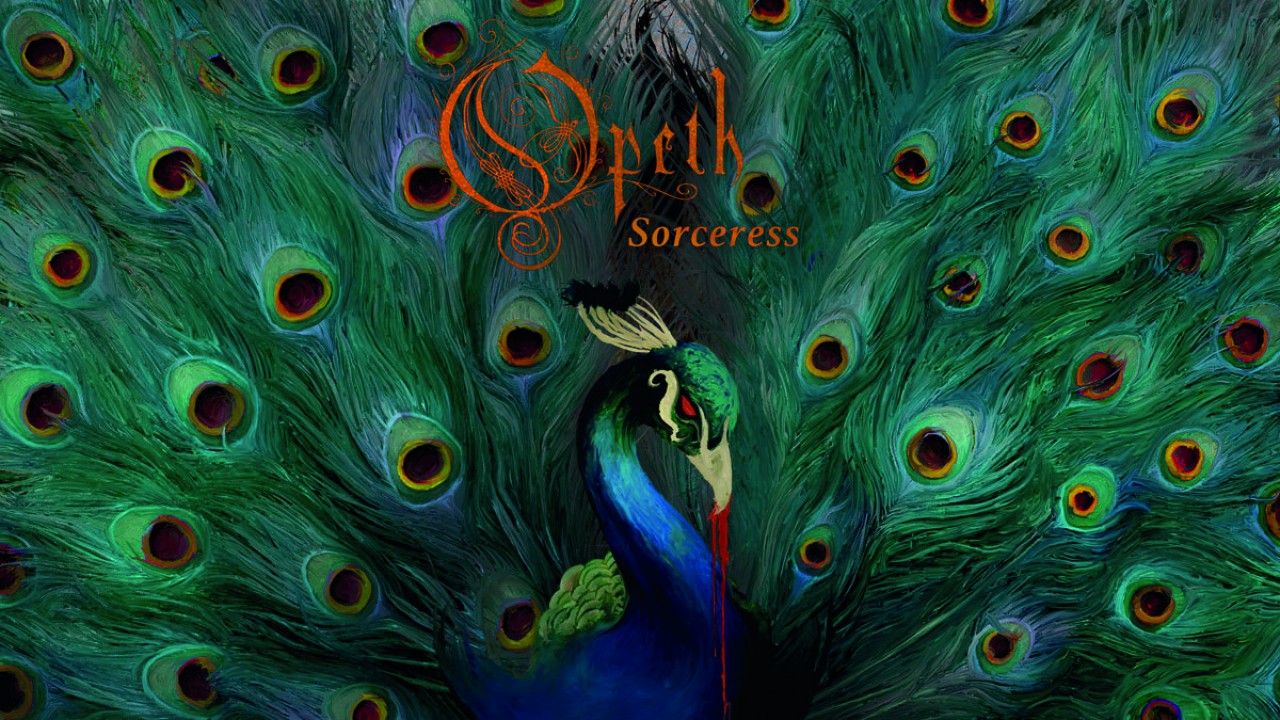Since their 2011 album Heritage, prog metal titans Opeth have been exploring their more progressive side. To various reactions from fans, the band have seemingly stood firm in their decision to eliminate the more metal part of their sound. 2008’s Watershed; with its growled vocals and technical death metal style riffing, marks the last time the band could be considered truly a part of the metal scene. That’s not to say that this is necessarily a negative thing, as many fans have stuck by the Swedish quintet and the band have managed to keep their popularity and credibility intact. Now releasing their 12th studio album, entitled Sorceress, have the band continued with the sound of their previous two releases or have they caved to the pressure of the more vocal metal fandom?
Upon pushing play, it’s clear Opeth are still fully enamoured with the retro progressive rock sound. Similar to the aforementioned Watershed, the record opens with soft, soothing acoustic guitars. Welcoming you to the album gently, Persephone embraces you with its warm sound. As the band dive into the title track, it’s even more obvious the prog sound is here to stay. However, after the quirky keyboard-heavy intro, massive chugging guitars enter the fray, propelling the song into a crushing groove. This is where Sorceress stands out from Opeth’s previous two releases, as the first few tracks contain a real sense of drive and purpose.
Despite the lack of growled vocals, the next song still sounds just as heavy as some of the band’s classic material. The main reason for this is the production; in a word Sorceress sounds simply glorious. The guitars are so crisp and precise and when the band lock into a serious chugging groove, it sounds massive. This can also be said for the softer tracks. Featuring gorgeous, layered acoustic guitars and soft keys, the production plays a huge part in creating such an immersive atmosphere. Songs such as Will O The Wisp do a great job in giving the record some breathing room. After being assaulted by the heaviness of the title track and prog-groove of The Wilde Flowers, you really do need some fresh air, before diving back into the densely packed progressive circus that is this album.
The record’s shining light, Chrysalis, includes all the great things about Opeth, whilst incorporating sounds the band haven’t explored too heavily before. The song injects some much needed pace into the record, with singer Mikael Åkerfeldt pushing his voice to the limit- giving the track a real feeling of anxious energy. The lack of growling vocals gives the feeling he has really made a conscious effort to incorporate more interesting vocal lines, along with expanding his range. Mikael has always had an outstanding singing voice, but on Sorceress he really does a more than impressive job of showcasing his vocal talent. Songs like Sorceress 2 and Will O the Wisp are pure pieces of beauty due to this.
However, despite how promising the first portion of Sorceress is, the second half slowly begins to feel slightly laboured. Anyone aware of Opeth will surely be expecting a lengthy record full of long, expansive songs. This record is of course no different, but at around track 8 it begins to overstay its welcome. As good as some of these songs are, the choice of having two acoustic songs followed by a delicate introduction to track Strange Brew really does kill the album’s flow. Clocking in at almost 9 minutes, this track in particular seems more than a chore to get through. Gone here is the driving forward momentum of the album’s first half, and for some reason the band just seem to get stuck in second gear- and don’t seem to get moving again until penultimate track Era.
There is no doubting how technically awe inspiring Opeth are as a band. However, after multiple minutes of guitar and keyboard interludes, it feels the only ones enjoying it are the musicians themselves. Arguably, this is something that puts non-fans off more than the extreme vocals ever did. Opeth are clearly at the size now where they can indulge in their own musical wizardry without much consequence, however new listeners may struggle in getting past this amount of prog chin-strokery.
Ultimately Sorceress is the best of Opeth’s recent more prog-orientated output, but pales in comparison to any of their classics like Deliverance or Blackwater Park. It’s not necessarily that the death metal aspects are gone, it’s just the material seems limp and rather lifeless. There are some indications that Opeth can successfully pull off this more retro sound, but they have yet to achieve it over the course of a full record. As difficult as it may be, anyone hoping for the band to return to their more metal sound will have to accept defeat. This style of prog-rock is just what Opeth do now, and like it or not it’s here to stay. However, until they get it right it’s hard not to long for the days of them being one of metal’s most innovative bands.
More on Opeth can be found here…














No Comment